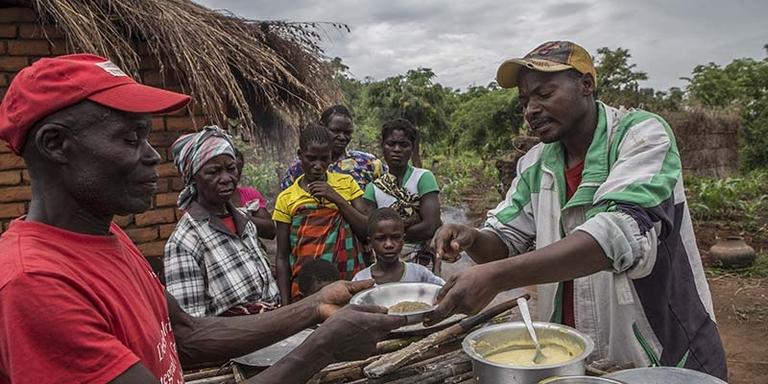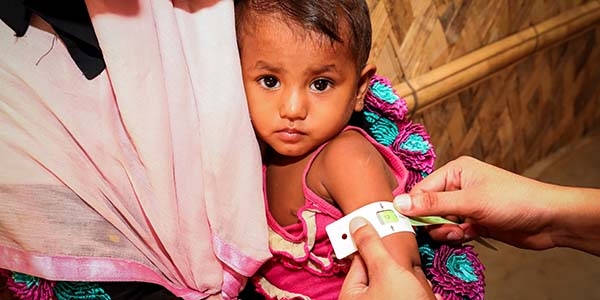According to the World Health Organization, nutrition-related factors contribute to about 45% of deaths in children under five years of age. Chronic malnutrition or stunting—when children are too short for their age because they have not been adequately nourished, received inadequate care and/or live in unhygienic environments—can leave a devastating and permanent impact on a child’s physical and cognitive capabilities.
��
Improving nutrition is key to ending preventable child deaths. Well-nourished children are better equipped to fight disease, grow and thrive, and learn and contribute to their communities. Mothers who are healthy have healthier children and more prosperous families, and societies with well-nourished populations are more productive, economically viable, and secure. The first 1,000 days—from the start of a woman’s pregnancy through her child’s second birthday—is the “” for nutrition to improve survival and build healthy futures for children. The adolescent age is also a critical time for nutrition.
Learn more about our
Focusing on the First 1,000 Days
��ɫ��Ƶworks with partners at all levels to prevent malnutrition for women, adolescents, and children. We do this by providing evidence-based, multi-sector nutrition interventions (especially optimal infant and young child nutrition (IYCN) and maternal nutrition) during the first 1,000 days to the most disadvantaged families. We work to ensure that girls reach adulthood well-nourished and equipped with skills to care for their future children.��
��
Multi-sectoral and Integrated Nutrition
We emphasize effective, integrated approaches to address the range of underlying causes of malnutrition and increase our reach. Our programs include evidence-based strategies to improve access to safe food and food production through the integration of nutrition-sensitive agriculture; water, sanitation, and hygiene (WASH); social protection; and livelihoods’ interventions.
��
Engaging the Community
Social and behavior change communications (SBCC) is an essential part of our approach to increase demand for nutrition and health services and better nutrition practices. This includes tailoring approaches to local strengths and resources, fostering positive social norms and gender-transformative approaches to nutrition, and strengthening community and household capacity to have agency to change nutrition and related behaviors.��
��
Strengthening Nutrition Services
We also support families with young children to access quality direct and indirect nutrition services delivered through health and agriculture workers and volunteers in the community. Working through existing structures, our projects build the capacity of local systems to deliver nutrition services in communities and at facilities.
��
Policy and Advocacy Initiatives
Political support for nutrition at global and national levels is critical to ensuring progress within communities. We support the��, a global network in 60 countries that unites civil society, governments, businesses, and other partners. We host the SUN Civil Society network and facilitate coalitions in several countries. We also support the U.S.-based 1,000 Days partnership and play a pivotal role in strengthening national nutrition policies and plans worldwide. Finally, we are a member of the����multidisciplinary consortium of nutrition, economics, food, and health system experts working to address the scale and reach of COVID-related nutrition challenges.
��
Nutrition in Humanitarian Settings
In humanitarian settings, we focus on the detection and treatment of acute malnutrition and infant and young child feeding (IYCF) among the world's most vulnerable populations. Through a community-based management approach, we treat acute malnutrition with ready-to-use therapeutic foods and medical treatment on an outpatient basis, close to home.��
��



